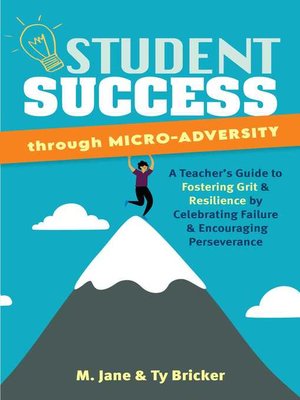Student Success through Micro-Adversity
ebook ∣ A Teacher's Guide to Fostering Grit and Resilience by Celebrating Failure and Encouraging Perseverance
By M. Jane

Sign up to save your library
With an OverDrive account, you can save your favorite libraries for at-a-glance information about availability. Find out more about OverDrive accounts.
Find this title in Libby, the library reading app by OverDrive.



Search for a digital library with this title
Title found at these libraries:
| Library Name | Distance |
|---|---|
| Loading... |
Cultivate resilience by incorporating small challenges (also known as micro-adversities) in your classroom with effective, trauma-informed strategies that are proven to improve behavior, increase engagement, and empower students to achieve.
One in four children have witnessed or experienced a traumatic event by the age of 16 that can affect behavior and learning. Fortunately, educators of all grade levels can inspire resilience and grit that helps students adapt to change and overcome hardship with simple everyday activities. This book offers a breakthrough method for building community and empowering your students with a new strategy: micro-adversity.
Micro-adversities in the classroom can be actionable activities, like trying to solve a puzzle that is intentionally missing a few pieces, or building emotional intelligence with conversation starters. By experiencing small failures, students learn to overcome them and thrive. Written by two teachers, one a former US Army Ranger, this method combines the extensively trained military perspective with the important foundations of trauma-informed education.
One in four children have witnessed or experienced a traumatic event by the age of 16 that can affect behavior and learning. Fortunately, educators of all grade levels can inspire resilience and grit that helps students adapt to change and overcome hardship with simple everyday activities. This book offers a breakthrough method for building community and empowering your students with a new strategy: micro-adversity.
Micro-adversities in the classroom can be actionable activities, like trying to solve a puzzle that is intentionally missing a few pieces, or building emotional intelligence with conversation starters. By experiencing small failures, students learn to overcome them and thrive. Written by two teachers, one a former US Army Ranger, this method combines the extensively trained military perspective with the important foundations of trauma-informed education.







